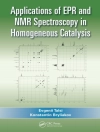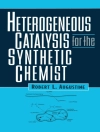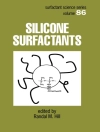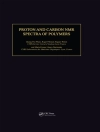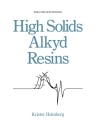This book joins and integrates ceramics and ceramic-based materials in various sectors of technology. A major imperative is to extract scientific information on joining and integration response of real, as well as model, material systems currently in a developmental stage.
This book envisions integration in its broadest sense as a fundamental enabling technology at multiple length scales that span the macro, millimeter, micrometer and nanometer ranges. Consequently, the book addresses integration issues in such diverse areas as space power and propulsion, thermoelectric power generation, solar energy, micro-electro-mechanical systems (MEMS), solid oxide fuel cells (SOFC), multi-chip modules, prosthetic devices, and implanted biosensors and stimulators. The engineering challenge of designing and manufacturing complex structural, functional, and smart components and devices for the above applications from smaller, geometrically simpler units requires innovative development of new integration technology and skillful adaptation of existing technology.
Daftar Isi
Introduction.
1. Ceramic integration across length scales: Technical issues, challenges, and opportunities (M. Singh, T. Ohji, R. Asthana and S. Mathur).
Science and Technology for Macro-Scale Integration.
2. Ceramic component integration by advanced brazing technologies(Jolanta Janczak-Rusch).
3. Joining and integration issues of ceramic matrix composites for nuclear industry (Monica Ferraris, Milena Salvo, Valentina Casalegno).
4. Air Brazing: A New Method of Ceramic-Ceramic and Ceramic-Metal Joining (K. S. Weil, J. T. Darsell, J. Y. Kim).
5. Diffusion bonding of silicon carbide as an enabling technology for the fabrication of complex-shaped ceramic components (Michael C. Halbig, Mrityunjay Singh).
6. Joining and integration of C/C composite to metals for thermal management applications (Mrityunjay Singh, Rajiv Asthana).
7. Contact interaction in carbon-metal systems for joining and integration (V. M. Oerevertailo, O. B. Loginova).
Integration Issues in Energy Generation and Device Fabrication.
8. Integration Technologies for Ferrites and Power Inductors in Ceramic Circuit Boards (Richard Matz).
9. Oxide Thermoelectric Power Generation (Ryoji Funahashi, Saori Urata, Atsuko Kosuga, Delphine Flahaut).
10. Integration technologies for solid oxide fuel cells (SOFC) and other electrochemical reactors (Yoshinobu Fujishiro, Toshio Suzuki, Toshiro Yamaguchi, Koichi Hamamoto, Masanobu Awano, Nigel Sammes).
11. Integration technologies for sensors (Woosuck Shin, Maiko Nishibori, Ichiro Matsubara).
12. On-chip integration of functional hybrid materials and components in nanophotonics and optoelectroincs (Talha Erdem, Hilmi Volkan Demir).
13. Integration of Multifunctional Properties in Thermal Barrier Coatings by Chemical Vapor Deposition (Takashi Goto).
14. The Changing physics in metal interconnect reliability (Cher Ming Tan, Yuejin Hou).
15. Integration Issues of Barium Strontium Titanate Thin Film Tunable Microwave Applications (Askok Kumar, Supriya Ketkar, Venkataraman Gurumurthy).
16. Aerosol Depostion (AD) integration techniques and its application to ‘On-Demand MEMS’ (Jun Akedo).
Nano and Bio Integration.
17. Advances in nano-integration methodologies: Patterning, positioning and self-assembly (Yoshitake Masuda, Kunihito Koumoto.
18. Integration of Nanowires in New Devices and Circuit Architectures: Challenges and Recent Developments (F. Hernández-Ramírez, J. D. Prades, A Romano-Rodriguez, S. Barth, H. Shen, S. Smathur).
19. Integrating Diamond-like carbon into Nanostructure Designs (Fabricating Micro and Nanoscale Architectures of Diamond-like Carbon Films (Xijun Li, Daniel H. C. Chua).
20. Synthesis, Properties, Integration and Applications of Vertically Aligned Ceramic Nanostructures (D. Pliszka, S. Sundarrajan, S. Ramakrishna).
21. Nanointegration based on thin film technology (C. Jin, W. Wei, R. Aggarwal, R. J. Narayan).
22. Mass-manufacturable Nonowire Integration: Challenges and Recent Developments (Ataur Sarkar, M. Saif Islam).
23. Usability of Inkjet Printing Technology and Nanometarials in Electrical Interconnections, Electronic Packaging, and System Integration for Microelectronics Applications (Umur Caglar, Ville Pekkanen, Jani Valkama, Pauliina Mansikkamäki, Jussi Pekkanen).
24. Bio-integration of prosthetic devices (Masakazu Kawashita, Toshiki Miyazaki, Chikara Ohtsuki).
Tentang Penulis
Mrityunjay Singh, Ph D, FASM, FACer S, FAAAS, is Chief Scientist
at Ohio Aerospace Institute, NASA Glenn Research Center, and is
actively involved in various activities related to processing,
manufacturing, joining and attachment technologies. He is
Academician of World Academy of Ceramics and Governor of Acta
Materialia, Inc. He has authored or coauthored more than two
hundred thirty publications, edited forty two books/journal
volumes, and holds several patents and technology transfers to
industries. He is recipient of numerous (more than forty) national
and international awards from all over the world including four
R&D 100 awards, NASA Public Service Medal, and NASA Exceptional
Space Act Award for outstanding and extraordinary contributions to
various NASA programs.
Tatsuki Ohji, Ph D, FACer S, is the Prime Senior Research
Scientist at Japan’s National Institute of Advanced Industrial
Science and Technology (AIST). His research interests include
characterization of ceramics, ceramic composites and porous
materials, design of advanced ceramics, and green ceramic
manufacturing. He has authored or coauthored more than 320
scientific papers and nine books, and holds more than forty
patents. He is a fellow of the American Ceramic Society,
Academician of the World Academy of Ceramics, a Governor of Acta
Materialia, Inc., and editorial board member of many international
journals.
Rajiv Asthana, Ph D, FASM, is a professor at the University of
Wisconsin-Stout where he teaches in the manufacturing engineering
and engineering technology programs. His research interests include
ceramic/metal joining, high-temperature capillarity and cast
metal-matrix composites. He is the author or coauthor of four books
and 150 refereed papers, an Associate Editor of Journal of
Materials Engineering & Performance, guest editor and editorial
board member of several refereed journals, and a fellow of ASM
International.
Sanjay Mathur, Ph D, is professor at the Institute of Inorganic
Chemistry at the University of Cologne, Germany. The major research
thrust of his group include chemical synthesis of functional
nanostructures and their processing for product and device
applications. He was an Alexander von Humboldt Fellow at the
Saarland University, where he accomplished his Habilitation. He has
authored or coauthored over 150 publications, edited a book, holds
several patents, and is and Associate Editor of International
Journal of Applied Ceramic Technology and Nanomaterials.



